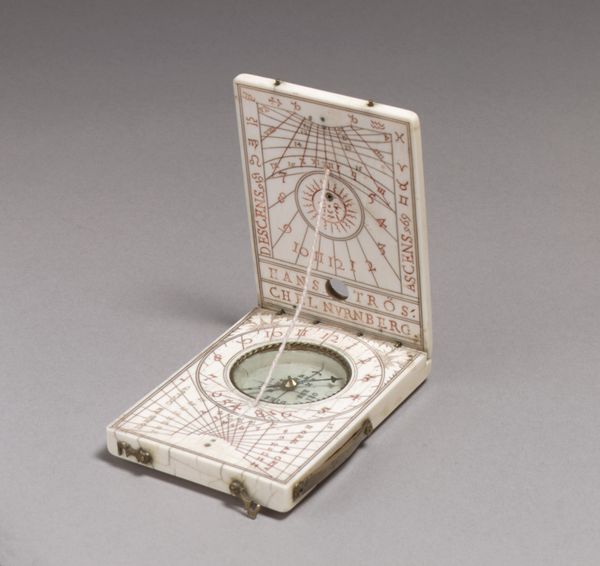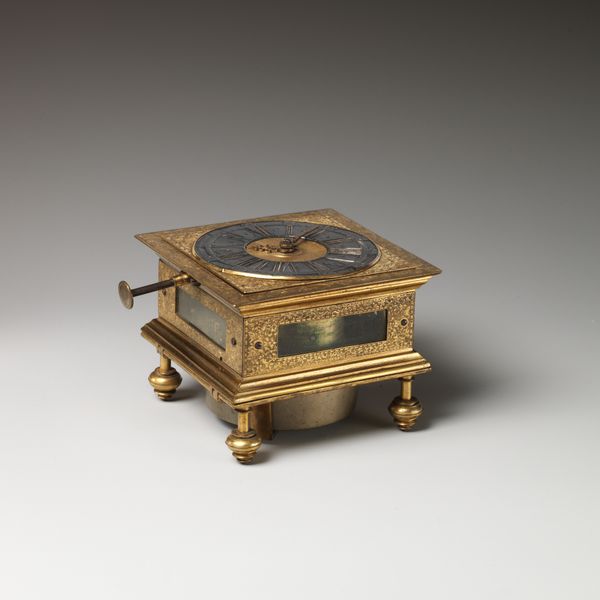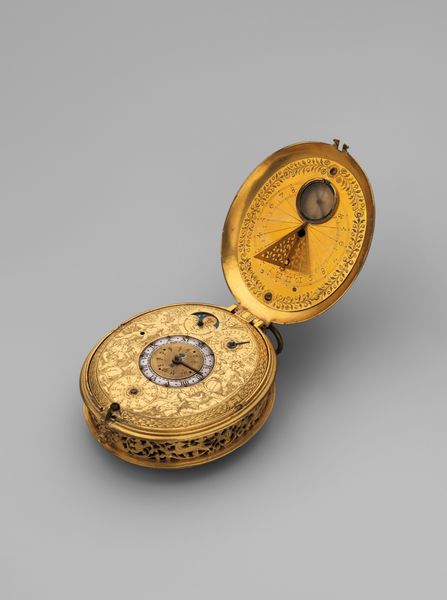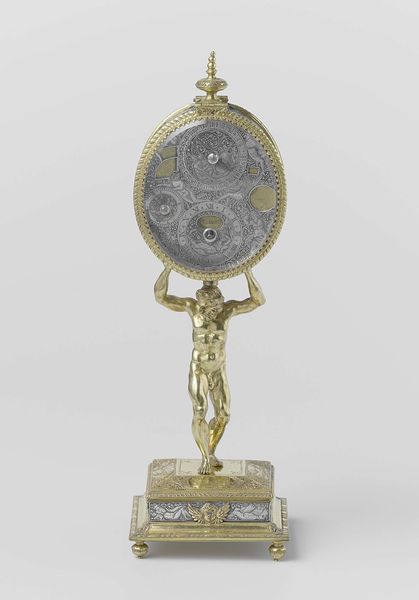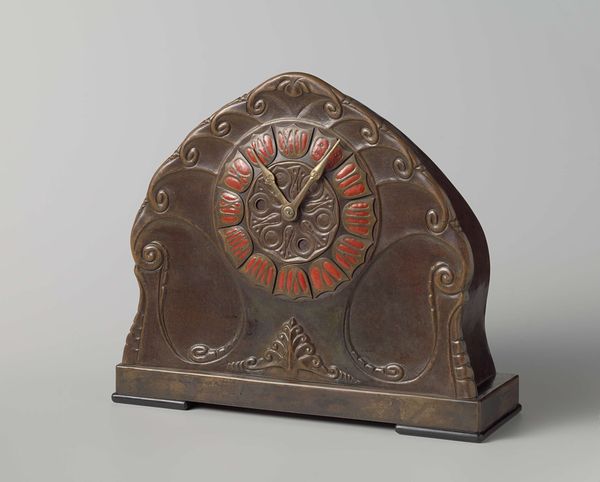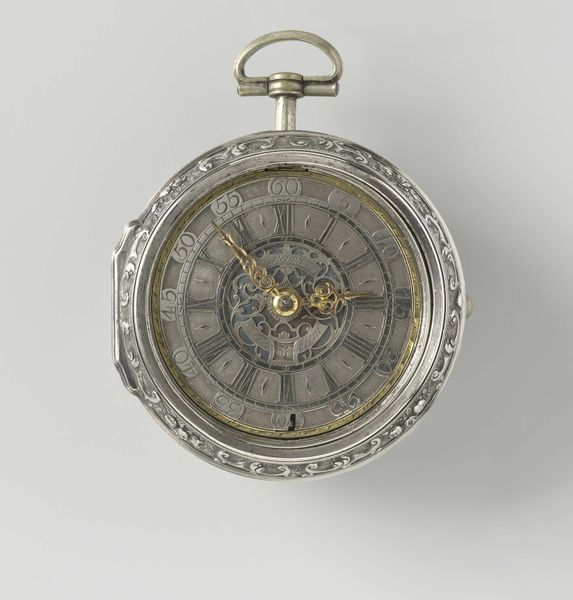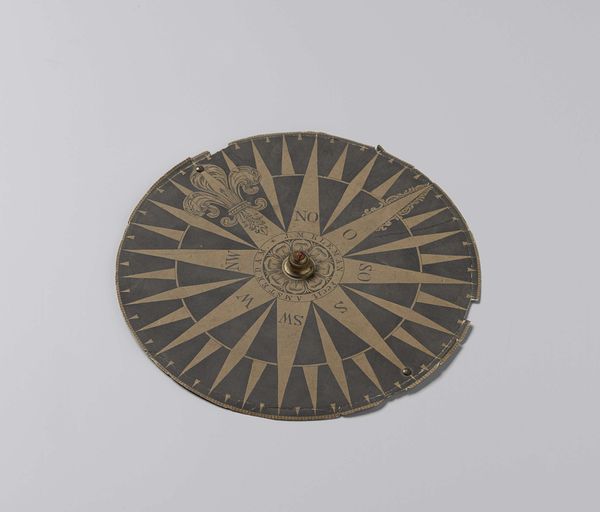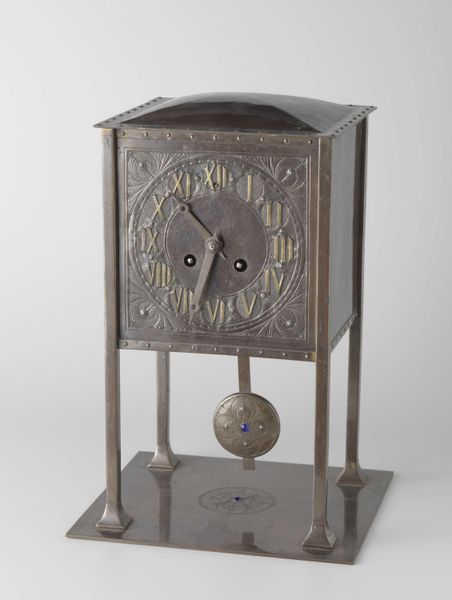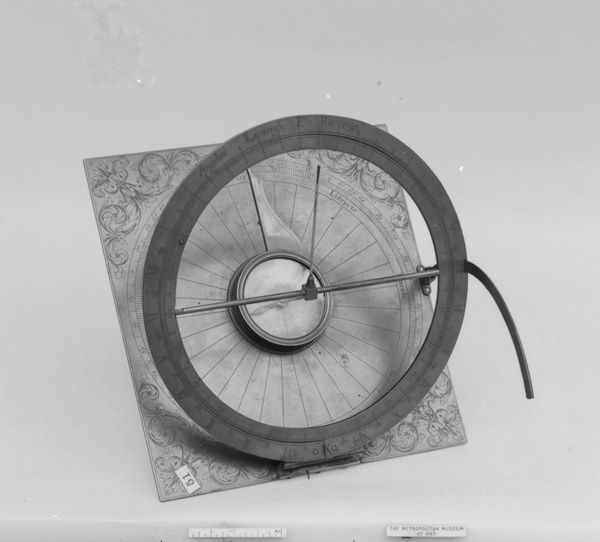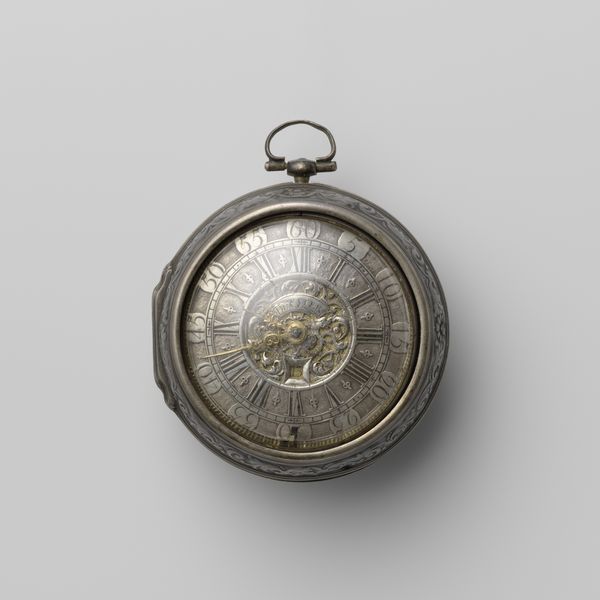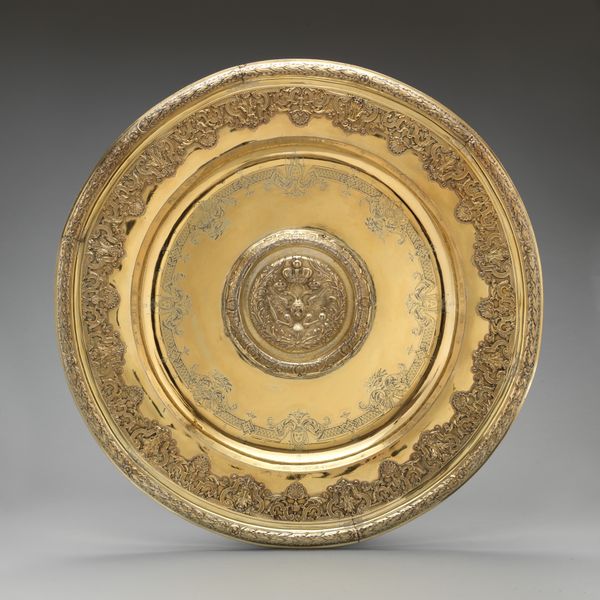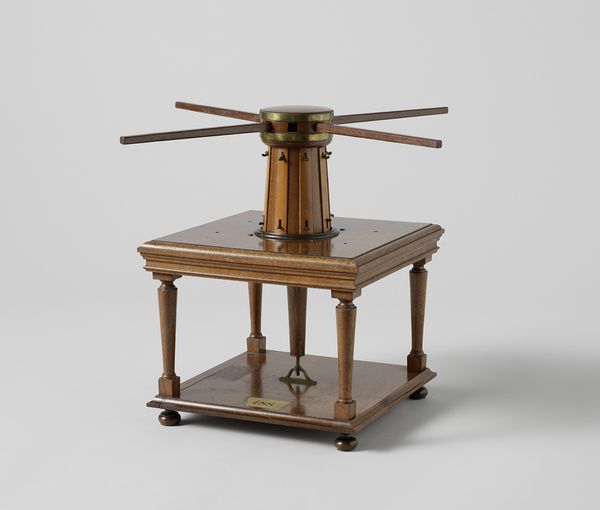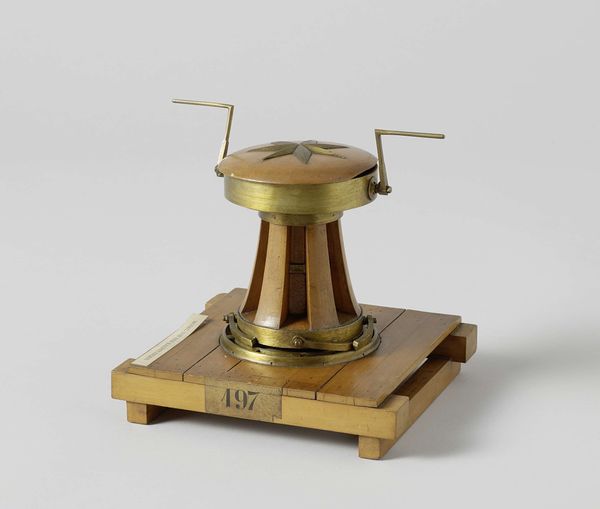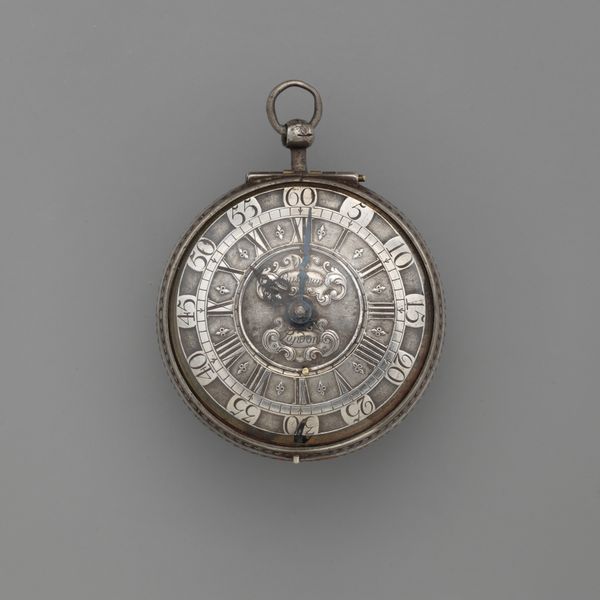
Portable Diptych with Compass, Sundial, and Perpetual Calendar 1660 - 1680
0:00
0:00
print, metal, paper, glass
# print
#
metal
#
paper
#
glass
#
geometric
#
france
#
decorative-art
#
miniature
Dimensions: 10.5 × 8.9 × 1.6 cm (4 1/8 × 3 1/2 × 5/8 in.)
Copyright: Public Domain
Curator: Look at this Portable Diptych crafted by Charles Bloud sometime between 1660 and 1680. It combines paper, glass, and metal to create this… device. Editor: Device is the perfect word! It's intricate, and I feel a little lost just looking at it. Like a tiny universe packed into a hinged box. It almost feels intimidatingly smart, don’t you think? Curator: I think that feeling of being "lost" is key. This diptych, with its compass, sundial, and perpetual calendar, speaks volumes about the intersection of technology and worldview in 17th-century France. How do we navigate a world where understanding time, space, and our place within the cosmos is paramount, not just practically but spiritually? Editor: Ooh, spiritually. Yes! There's this sense of control, of charting your own destiny – all held in the palm of your hand! But is it real control, or just the illusion of it? Like carrying around a paper moon, you know? Curator: The illusion of control is powerful. Especially if you think about the social context of the era—the rise of scientific thought juxtaposed with the rigid structures of society and religion. Who gets to "control" knowledge? Who has access to tools like this? It immediately brings up issues of power and privilege. Editor: True, it wasn't exactly a mass-produced iPhone! This was luxury, expertise, and maybe a touch of... showing off? But I also imagine someone relying on this out on a ship, under the stars, desperate for direction. That’s much less about power and much more about simple human survival, you know? Curator: And those two are deeply intertwined, especially when it comes to exploration and colonization. It is no coincidence that these tools emerged and were perfected precisely when European powers expanded their reach across the globe. What this tool aided enabled is a key part of that legacy. Editor: I guess what I love, though, is that even today, despite GPS and digital calendars, there's something so satisfying about the analogue nature of this object. The gears turning, the shadows moving... you feel connected to time and space in a visceral way. Curator: Right, there is something human about attempting to order the world around us with small and fragile tools. The urge to know, to measure, and to understand hasn’t gone anywhere. Editor: Yeah, a portable yearning. Maybe we all carry one of these diptychs, metaphorically speaking, searching for our place in the sun. Curator: An interesting way to think about it, perhaps more romantic than I'd put it, but useful!
Comments
No comments
Be the first to comment and join the conversation on the ultimate creative platform.
